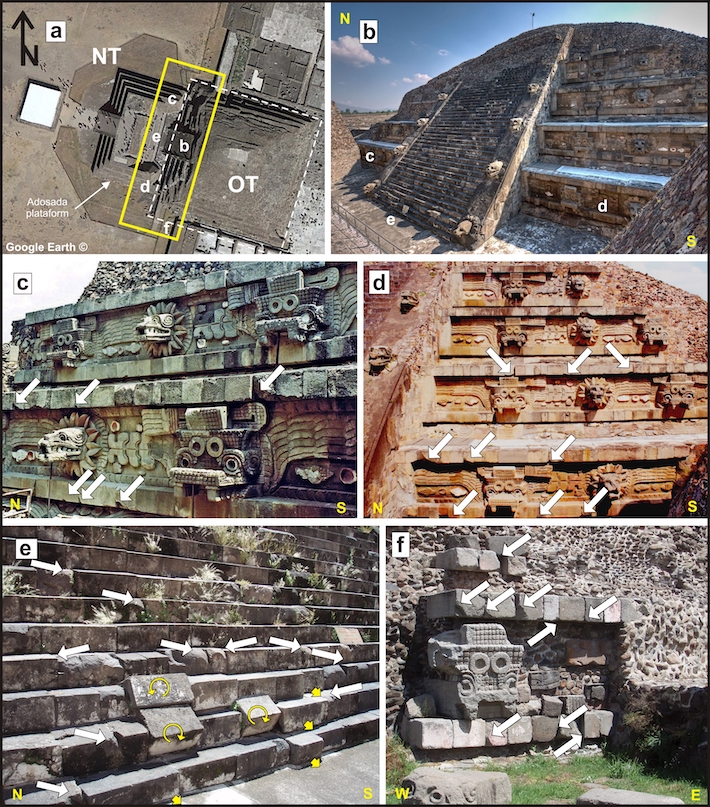Teotihuacan's Pyramids Damaged By Ancient Earthquakes
Thursday, April 25, 2024

(Pérez-López et al. 2024, Journal of Archaeological Science: Reports)
MADRID, SPAIN—A new study of pyramids at the ancient city of Teotihuacan by a team of Spanish geologists has documented damage to the structures caused by five devastating megathrust earthquakes that hit the site between about A.D. 100 and 600, Live Science reports. At its height, the population of Teotihuacan, which is located northeast of Mexico City, reached some 100,000 residents. Megathrust earthquakes occur at subduction zones of tectonic plates, and though they tend to happen more infrequently than other seismic events, their magnitude is much greater. The researchers recorded the effects of immense ground shaking on the Temple of the Feathered Serpent, the Pyramid of the Sun, and the Pyramid of the Moon. The structural damage included fracturing and dislodging of large masonry blocks used to construct the buildings, as well as chipping of blocks that comprised the pyramids' outer stairs. "The initial response by the Teotihuacanos was to reinforce the Sun Pyramid, the largest structure in their city, along its north-south axis in an attempt to fortify it against future earthquakes," said geologist Raúl Pérez-López of the Geological and Mining Institute of Spain. "Additionally, they repurposed and removed other elements damaged by seismic activity. Interestingly, they opted to conceal one of the most conspicuous signs of earthquake damage: the rotation and displacement of the west staircase of the Temple of the Feathered Serpent." Despite these efforts, he said, the earthquakes were likely a contributing factor to the city's precipitous population decline and later abandonment at the end of the seventh century. "The disruption caused by a devastating earthquake not only shakes the physical foundations of a society but also destabilizes its social and political structures," Pérez-López concluded. "This creates fertile ground for unrest, potentially sparking rebellions fueled by neighboring cities and exacerbating existing tensions." Read the original scholarly article about this research in Journal of Archaeological Science: Reports. To read about liquid mercury found beneath the Feathered Serpent Pyramid, go to "Mythological Mercury Pool," one of ARCHAEOLOGY's Top 10 Discoveries of 2015.
No comments:
Post a Comment